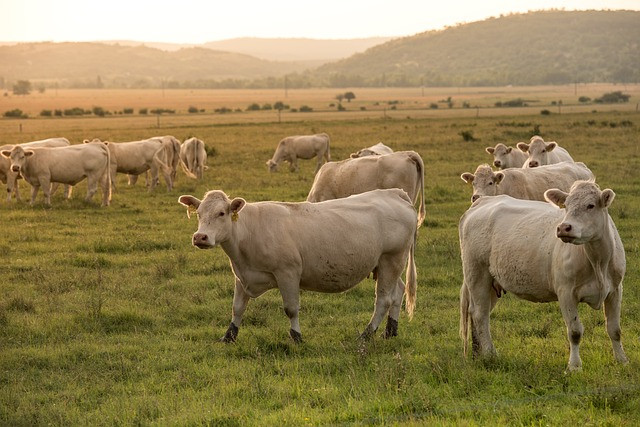CANBERRA, Oct 23 - In a resounding call to safeguard the interests of Australian agriculture, farm industry groups have implored the government to exercise prudence in finalizing a trade deal with the European Union (EU). They argue that the agreement must offer substantially greater market access for Australian agricultural products to be deemed beneficial.
Australia, renowned as one of the world's leading exporters of agricultural goods, spanning from wheat, beef, and wool to wine, has been engaged in negotiations for a trade deal with the EU since 2018.
Back in July, the Australian government took a bold step by walking away from a deal it deemed inadequate in its current form for the nation's farmers. However, negotiations have since resumed, and Trade Minister Don Farrell is scheduled to meet with his EU counterpart at the upcoming Group of Seven (G7) trade ministers' meeting in Osaka on October 28-29. This marks their first face-to-face meeting since the temporary pause in negotiations.
The National Farmers' Federation (NFF) has voiced deep concerns that the forthcoming agreement may leave Australian farmers at a disadvantage relative to other global exporters for an extended period. The NFF emphasized that the EU must present a commercially meaningful proposal to move the discussions forward.
NFF President Fiona Simson stated, "We've yet to hear any indication that the EU is willing to put a commercially meaningful deal on the table. Everything we've seen so far would actually send parts of our sector backward. The message from Australian farmers is clear and united: if it's a subpar deal, it's better to refrain from signing it."
Another industry group, Meat and Livestock Australia, echoed these sentiments, highlighting the need for significant improvements to the deal before it gains their approval. They criticized the EU's position on red meat quotas as "highly restrictive."
In response, Trade Minister Don Farrell emphasized the government's commitment to pursuing a trade agreement with the EU but not at any cost. He made it clear that the final deal must yield practical benefits for Australian businesses, including enhanced market access for farmers and producers.
While both sides have maintained a degree of confidentiality regarding their specific negotiating positions, recent reports suggest that the proposed EU import quotas for Australian sugar are so low that they may render shipments commercially unviable. This issue has added to the complexity of the negotiations.
In the quest for expanded access to EU markets for Australian agricultural output, the nation is also considering potential trade-offs, including offering simplified investment access for the EU within Australia's critical minerals industry.
As Australia and the EU grapple with these pivotal trade negotiations, the outcome is poised to have far-reaching implications for both economic sectors and could redefine their global trade dynamics.
